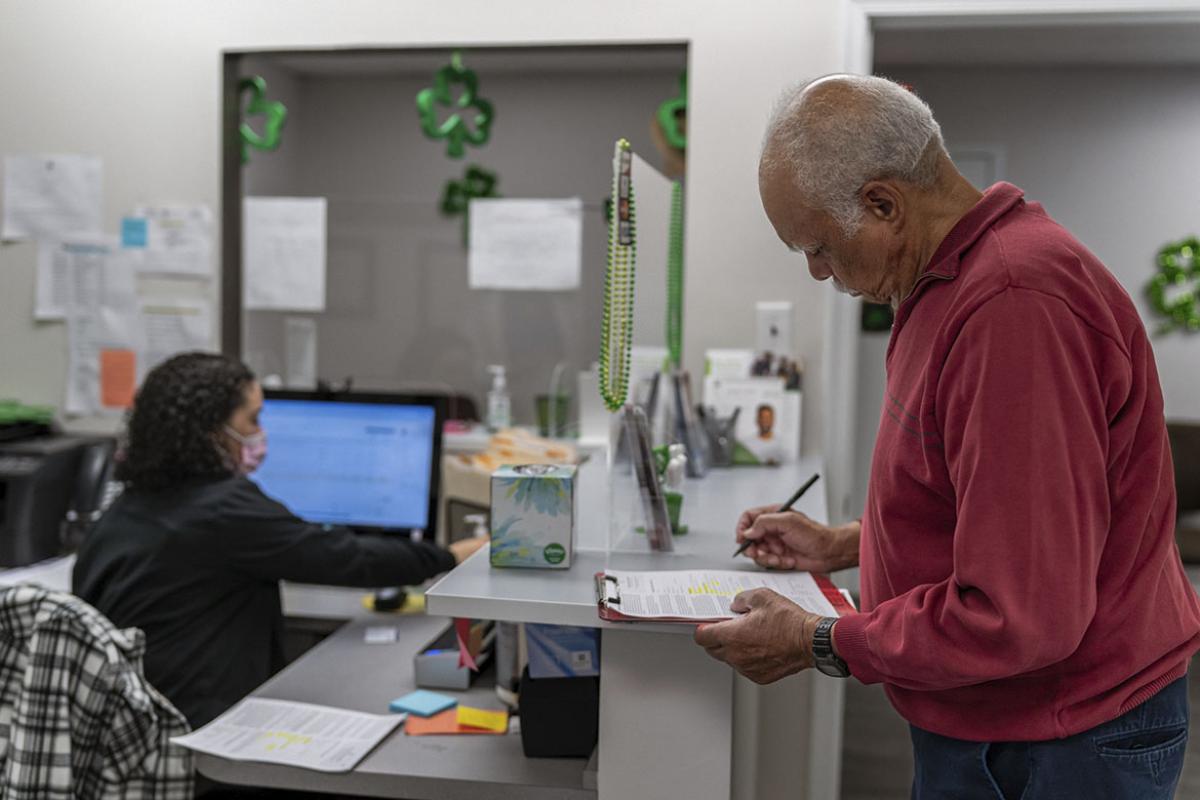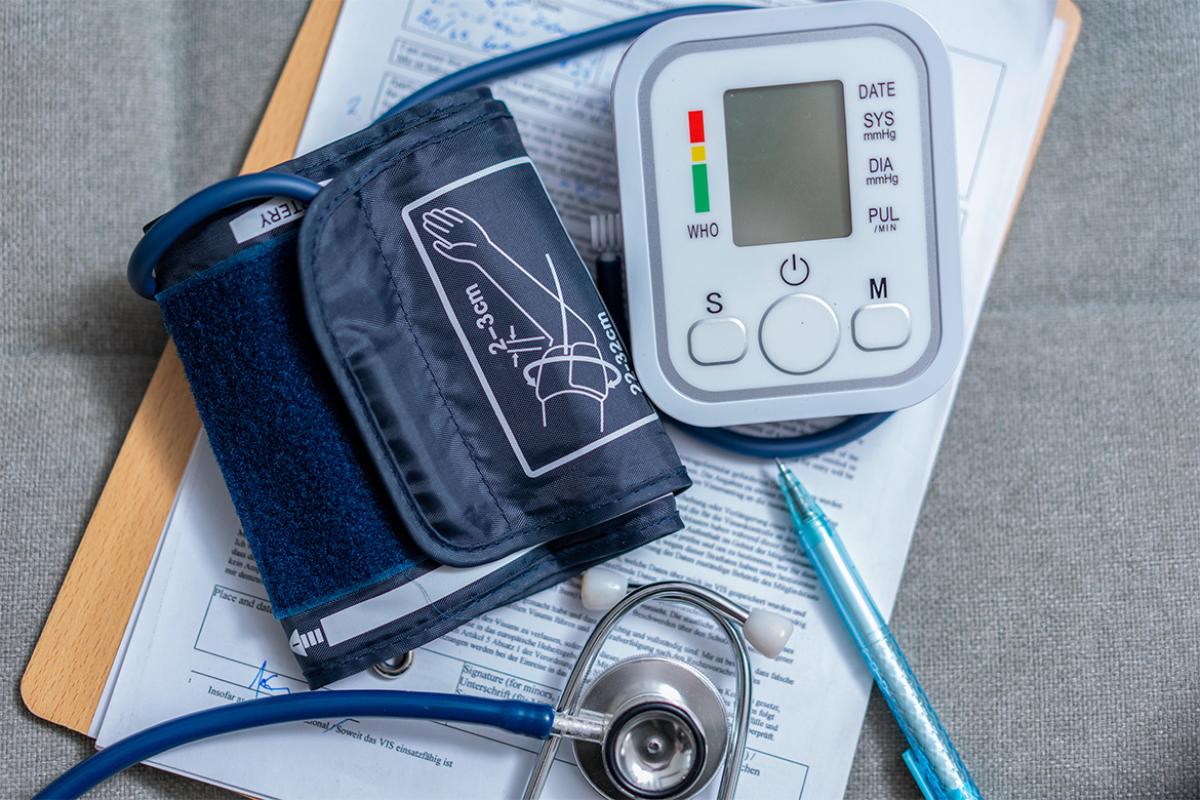AMA President Patrice A. Harris, MD, MA, and Board Chair Jesse M. Ehrenfeld, MD, MPH, discuss how racism and police violence—especially against marginalized and minoritized communities—negatively impacts health and how the AMA is taking action to advance health equity.
Transcript
Dr. Ehrenfeld: Well, good morning. I'm Dr. Jesse Ehrenfeld, chair of the American Medical Association. And today I'm speaking with Dr. Patrice Harris, our AMA president.
Given the events of the last week and the impact of police violence, particularly on brown and black people and other marginalized communities, we wanted to take a few minutes to talk about the important health effects of racism, as well as what the AMA is doing in our commitment to health equity and addressing the social determinants of health.
Dr. Harris, the AMA made a powerful statement against police brutality on Friday, why did the AMA decide to speak out?
Dr. Harris: Well, Jess, we did. And as you know, it has been a really a tough couple of weeks, and so many incidents over the past several weeks have brought us here today. And physicians on the front lines see both the short term, immediate and long-term effects on health, by racism and trauma.
And so we really thought, and my honor, and pleasure to be able to coauthor that statement with you, but the AMA really thought, certainly we really needed to amplify these issues, name these issues, so that we can then move forward on action.
Dr. Ehrenfeld: Thank you, so how does police violence against communities of color and other marginalized groups and minority communities impact their health?
Dr. Harris: Well, certainly we know that police and let's just say this, and this is what we said in our viewpoint article that police brutality must stop. And we also need to not only have conversations, but have a path forward with specific actions to dealing with racism, but Dr. Ehrenfeld I know you so much. I typically call you Jess, but we have to appreciate that these are traumatic events.
This is trauma, and the evidence is clear that trauma, again, has long-term impacts on our health. And, you know Jess, I think some people might even focus on the psychological impacts and that is true, but we have data to show that there are other impacts, impacts to the cardiovascular system.
So again, physicians see these impacts and we really need to begin to act and do whatever we can.
Dr. Ehrenfeld: So recognizing, there are a lot of folks who serve in law enforcement who are deeply committed to justice, but the violence that's often inflicted by police in the news headlines that we're seeing today, it's got to be understood in relation to kind of the larger social and economic arrangements that put people in harm's way, that leads to that premature illness and death. So how would you say that racism and racist behavior impacts health?
Dr. Harris: Well, context is so important here, and we talk a lot about the social determinants of health. Housing or access to an adequate housing, living in a food desert, not having appropriate transportation or the inequities around education. But you know what, we have to step back and say, "Well, how did we get there?" And we know there are policies of structural and personal racism.
And what about the red lining discriminatory housing policies from years ago that have led to particular minority communities living in particular areas or no access to fresh fruits and vegetables.
And so we really have to make sure that we are identifying the structural legacy of racism and also the continued bias, implicit bias and overt bias that is impacting our health today.
Dr. Ehrenfeld: Dr. Harris, in any season, police violence is an injustice and cannot be tolerated, but its harm is elevated, particularly given the remarkable stress that people are facing during this COVID-19 pandemic. How is the AMA working to address these inequities in our country at this moment?
Dr. Harris: So I'm so very proud of the work that we are doing at AMA. First of all, we have had long standing policy on these issues. We just created a center for health equity and hired our first chief health equity officer, Dr. Aletha Maybank, who will lead us in making sure that these issues are embedded, or action to address these issues and embedded into the DNA of our organization.
So we are taking the lead on that, this statement, our policy of physicians standing up and speaking out is what is necessary to move forward.
Dr. Ehrenfeld: Yeah, thanks for that. I can't help but think back today is the first day of June is the beginning of Pride Month. As a gay man in America, I can't help, but think back to the 1969 Stonewall riots, which happened after a police raid on a gay bar in New York city. And as many are calling for systematic change across our criminal justice system, across our health system, what would you urge physicians to do now in America today?
Dr. Harris: Well, part of it is what we are doing right now. Jess, you identify yourself as a gay man. I am an African American woman, and we bring those lived experiences to our leadership positions and to our medical community.
And so I would say the first thing that everyone can do is listen. It is not necessary to have all the answers. None of us have all the answers right now, but we need everyone to take a moment and listen, and make a commitment to act. After we get through the immediate crisis, we will have to make sure we have that continued commitment to ask.
And if you don't know what to say, that's okay, call up your colleague, tell your patient, "Listen, I don't know what to say, but I am willing to act and stand with you. So you help me know what to say, and you help me know what to do."
Dr. Ehrenfeld: We have also urged the AMA, other health organizations to take up the mantle of intolerance for police brutality and racism. We're urging states to require reporting of legal interventions and law enforcement homicides to public health agencies. What would you say to other health organizations across the country right now?
Dr. Harris: Well, I would say that through their policy, but also through their actions, work with us. This will require partnerships. It will require all of us making a commitment to act as we move forward.
And so the AMA is known for our ability to convene and partner. And we're just asking everyone to partner with us as we continue to address the issue of racism and the appreciation of racism and the impact of racism on our overall health care.
Dr. Ehrenfeld: Patrice, as I think about our trainees across the country, our medical students and residents and fellows, what would you say to them, what context could you provide as they try to understand what they're seeing in the country today?
Dr. Harris: Well, there are some trainees who appreciate this right through their own lived experiences. And there are some trainees who don't. And those who don't can make a first step by asking, "What should I read? How should I understand my own privilege?"
Again, even as an African American woman, I am a physician and I know that I enjoy some privilege even in this conversation. And so I think those who enjoy some privilege should make an extra effort even before they want to have a conversation, is what can they learn, what books can they read, what information do they need to move us forward?
So I would say, be willing to learn all that you can, and then take that knowledge with you to conversations with those who are directly impacted. But most importantly, Jess, ask those who are impacted, how they are doing, how they're really doing.
Dr. Ehrenfeld: Thanks so much. Again, I'm Dr. Jesse Ehrenfeld, chair of the AMA. I've been speaking with Dr. Patrice Harris, our AMA president. It is clear to us that police brutality simply must stop. Our country, our society simply demands more. Thank you.



